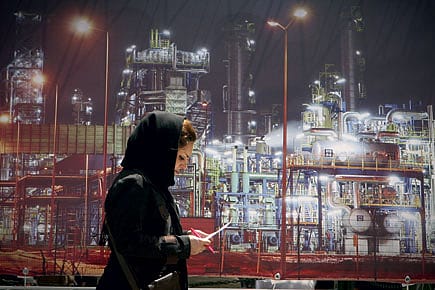America’s New Iran Strategy

The goal of America's latest sanctions is to reduce Iran's export earnings drastically while shielding the global economy from oil price spikes
The confrontation between the West and Iran is likely to shape events in the global oil market—and beyond— through much of 2012, as the US and its allies tighten their sanctions in the hope of scuttling Iran's nuclear ambitions. A recent report that the Islamic Republic is busy enriching uranium in a deeply concealed underground bunker has only added to the sense of alarm in Washington DC. An unpredictable enemy armed with nukes is America's worst nightmare. However, the US, ever wary of high oil prices, has devised a strategy that it expects will thwart Iran's ambitions without causing any significant damage to the world economy.
The broad idea is to squeeze Iran financially by hitting its oil export revenues (about $80 billion annually). Hence, America's sanctions—which have been formulated to penalise any party seen transacting business with the central bank of Iran to settles oil payments. US President Obama has given six months to importers of Iranian oil to take their choice: either Iranian oil or access to the US financial system. European countries have already agreed in principle to ban oil imports from Iran, and India is under pressure to do likewise. "The goal of these sanctions is to reduce Iran's export earnings while protecting the global economy from oil price spikes," explains Bob McNally, president, The Rapidan Group, a Washington-based energy thinktank.
Imran Khan: Pakistan’s Prisoner
27 Feb 2026 - Vol 04 | Issue 60
The descent and despair of Imran Khan
What that means, in practice, is that the US will be pleased to let Iran's oil flow into the global market, somehow. "To help stabilise oil prices," says McNally, "Iran's exports need to keep flowing to some customers, while these are reduced or stopped for others." The US just does not want its enemy making money off its exports, that's all. To see that happen, its sanctions leave an exemption 'loophole' for those who 'significantly' reduce their purchases from Iran or buy crude oil from it at a hefty discount.
That last bit is expected to work by reducing Iran's buyers so sharply that those still willing to buy oil from it can actually demand a cut-rate price. With Europe no longer a buyer, and assuming that most Asian countries clamp their purchases, this cut-rate buyer is likely to be China—which is slurping up oil like there's no tomorrow. According to Mark Dubowitz, executive director at Foundation for Defense of Democracy, this so-called 'oligopsony effect' (a situation with so few buyers that they can command their own prices) would reduce Tehran's oil revenues by as much as $39 billion. With a much smaller national budget, the Iranian regime would then come under intense pressure to survive, as the calculation goes.
The strategy has been widely hailed in the West as brilliant, and efforts are on to make other countries—such as India, an importer of Iranian oil—see its benefits. Says Dubowitz: "The arrangement provides an opportunity for all countries, including India, to demonstrate that they can have an impact on Iranian oil revenues by either cutting their purchases of Iranian oil, or asking for price discounts on every barrel of Iranian oil, or both."
Under US pressure, India is already in go-slow mode over the Iran-Pakistan-India gas pipeline, once envisioned as a way to end India's yawning energy deficit, and New Delhi is reluctant to give up its oil imports from Iran as well. However, given the current threat of US sanctions, India will have to find a way to work the new system to its advantage.
Of course, what is unclear is how Iran will respond to such a squeeze. Existing UN and US sanctions have already hurt Iran. They have reportedly frozen some $60 billion of investment that Iran badly needs to boost its hydrocarbon output. But its nuclear programme has not been deterred. "Sanctions will likely not change the risk-reward calculus of Iran's [Supreme] leader, Ali Khamenei, with respect to his pursuit of nuclear weapons," agrees Dubowitz, but adds that "sanctions could contribute to popular unrest, economic pressure and political turmoil". US sanctions since mid-2010 have raised petroleum product prices in Iran—which has proven unpopular on the street.
The US would need to keep the global oil market calm even as its new strategy kicks in. Given that the idea is to 'divert' instead of 'disrupt' oil supplies, experts see no reason to worry. Also, there is Saudi Arabia's spare capacity. This explains why some forecasters expect the price of oil in 2012 to be a function of global economic conditions more than the West's standoff with the Islamic Republic. But then, given the volatility of the Middle East, and Iran's yen for intrigue, that could turn out to be wishful thinking.
